Social media strategy good practices is a short list of principles that can make your firm stand out when empowering customer and employee experience. It’s part of a talk I gave today to a large multidisciplinary team. Their venerable institution plans to use social media strategy to get the ducks in a row without too much squawking. The most exciting aspect of social media strategy is that there’s so much room for improvement: while your peers and competitors are trying to “engage” with finely crafted-yet-impersonal content, you can power past them using experiential social media, which focuses on scalable interaction.
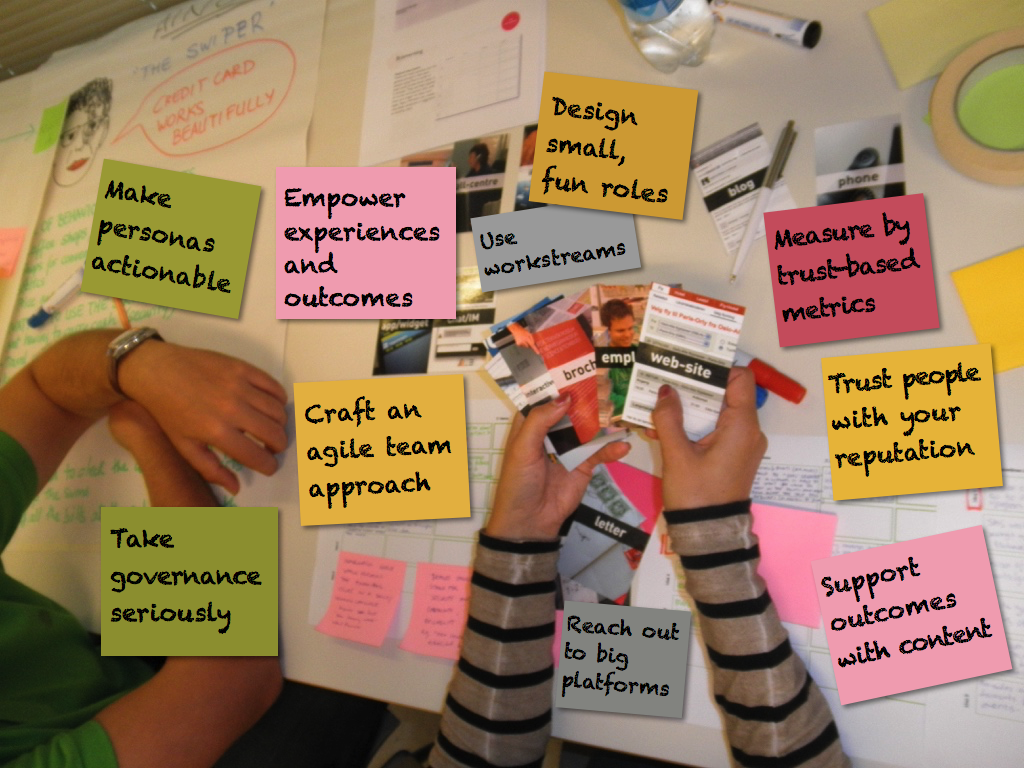
Here are the cliff notes to the good practices part of our discussion:
[…]
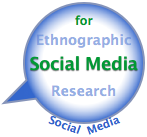 Ethnographic research for social media initiatives shows how ethnography can change the rules of social media programs in marketing, customer service, product development, recruiting and others. Ethnographic research enables teams to understand the people who are most important to your firm so they can relate to them at a completely different level. Moreover, interacting in digital public activates the network effect and the annuity effect, so it’s very scalable. Since your teams interact in digital public, where a far larger group of like people observes the interactions, they influence a large group of people and build relationships with them. People start trusting your firm, preferring your firm, and doing more business with you. See the Trust Business Chain Reaction and infographic for how it monetizes. Ethnographic research for social media initiatives shows how ethnography can change the rules of social media programs in marketing, customer service, product development, recruiting and others. Ethnographic research enables teams to understand the people who are most important to your firm so they can relate to them at a completely different level. Moreover, interacting in digital public activates the network effect and the annuity effect, so it’s very scalable. Since your teams interact in digital public, where a far larger group of like people observes the interactions, they influence a large group of people and build relationships with them. People start trusting your firm, preferring your firm, and doing more business with you. See the Trust Business Chain Reaction and infographic for how it monetizes.
Ethnographic research for social media initiatives is a game-changer for customer experience and digital transformation programs in multiple phases. It’s faster, less costly, and scalable. It provides an unprecedented combination of qualitative and quantitative research.
[…]
 Ethnographic research for product management shows how to apply ethnographic research of social media to managing the life cycle of products and services. Ethnographic research of social media can revolutionize product management because it’s a very efficient way to study people’s behavior and motivations in each part of the product life cycle. Unlike traditional product and ethnographic research methods, which are relatively slow, costly and qualitative, ethnographic research of social media combines qualitative richness with quantitative analysis. It’s faster and less costly, too. Ethnographic research for product management shows how to apply ethnographic research of social media to managing the life cycle of products and services. Ethnographic research of social media can revolutionize product management because it’s a very efficient way to study people’s behavior and motivations in each part of the product life cycle. Unlike traditional product and ethnographic research methods, which are relatively slow, costly and qualitative, ethnographic research of social media combines qualitative richness with quantitative analysis. It’s faster and less costly, too.
This post outlines the product management use case of ethnographic research of social media. For more on ethnographic research, see its executive summary.
[…]
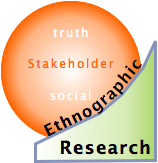 [Updated] Ethnographic research of social media is one of my biggest secrets. It has become the foundation of CSRA’s ability to create trust at scale, so here I’ll share how I came to use it with social media. Then I’ll explain what ethnographic research is, why it’s vital to CSRA, and how it works, so you can use it. Finally, I’ll share use cases for experiential social media, product management, business innovation, and cross-border business. [Updated] Ethnographic research of social media is one of my biggest secrets. It has become the foundation of CSRA’s ability to create trust at scale, so here I’ll share how I came to use it with social media. Then I’ll explain what ethnographic research is, why it’s vital to CSRA, and how it works, so you can use it. Finally, I’ll share use cases for experiential social media, product management, business innovation, and cross-border business.
[…]
 Autonomy Artificial Intelligence and the Internet of Things reflects on how people’s autonomy will be affected by software-powered devices and systems that are rapidly permeating our individual and social lives. Autonomy Artificial Intelligence and the Internet of Things reflects on how people’s autonomy will be affected by software-powered devices and systems that are rapidly permeating our individual and social lives.
Although this noodle has a strong personal angle for me, I also have the unusual benefit of having regular conversations with people who are leading the redesign of our “environment.” By superimposing digital devices, sensors, and “intelligence” onto the physical world, designers, engineers, policy makers, behavioral economists, neuroscientists, nanoscientists, and investors, just to name a few, are changing how we perceive and interact with our “world,” so I’ll also bring my insights from those conversations to it. Finally, I’ll consider creator and user points of view on autonomy artificial intelligence and the Internet of things.
[…]
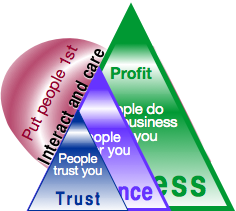 The Trust-Business Chain Reaction How Trust Monetizes describes one of the most disruptive and untapped forces in business, for it shows how trust monetizes at scale. Firms that act on it first can create exceptional advantage for themselves since the reaction grows geometrically. Here is how the reaction works—and how experiential social media activates it. The Trust-Business Chain Reaction How Trust Monetizes describes one of the most disruptive and untapped forces in business, for it shows how trust monetizes at scale. Firms that act on it first can create exceptional advantage for themselves since the reaction grows geometrically. Here is how the reaction works—and how experiential social media activates it.
The Trust-Business Chain Reaction significantly increases profit and other business results in a surprisingly simple human way. It directly addresses customer experience and employee engagement.
[…]
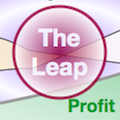 How Trusting Customers Drives Profit reveals how firms unwittingly broadcast that they don’t trust their customers, how that weakens profit, and how firms can take the leap. It’s a simple revolutionary idea that’s born from nine years of studying behavior while practicing experiential social media and social business. How Trusting Customers Drives Profit reveals how firms unwittingly broadcast that they don’t trust their customers, how that weakens profit, and how firms can take the leap. It’s a simple revolutionary idea that’s born from nine years of studying behavior while practicing experiential social media and social business.
Analysts, consultants and professors increasingly say that customer experience is the last bastion of competitiveness, and an increasing portion of total experience occurs in digital public. This presents firms with an unprecedented opportunity: interacting with people in digital public can create trust at scale and drive profit from revenue and cost levers.
[…]
How Free Things Are Disrupting Businesses + Radical Innovation + Guide to Free Business Models
Book Review: Free/Chris Anderson
 Free is an indispensable introduction to the disruption of “a product for a price,” one of the Industrial Economy’s key constructs. It is rich with examples of many of the pricing innovations and business models with which you’re probably familiar but haven’t thought about in depth. Many of its examples have to do with digital products, which are inherently disruptive because their distribution cost is close to zero, and they can displace legacy analog products. Free is an indispensable introduction to the disruption of “a product for a price,” one of the Industrial Economy’s key constructs. It is rich with examples of many of the pricing innovations and business models with which you’re probably familiar but haven’t thought about in depth. Many of its examples have to do with digital products, which are inherently disruptive because their distribution cost is close to zero, and they can displace legacy analog products.
Free is important and useful for two reasons beyond pricing and business model innovation: it contains a good dollop of behavioral economics with regard to pricing, and it gives numerous examples for thinking beyond the two-party market model that dominated the Industrial Economy, buyer and seller. As Anderson repeatedly shows, in digitally networked markets spawned by the Internet, firms put themselves at significant risk when they don’t adopt a networked ecosystem mindset. For example:
When something becomes free, […]
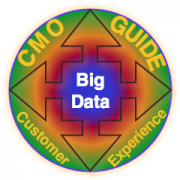 The CMO Guide to Big Data and Analytics shows how CMOs can use exploding digital social and transaction data from websites, enterprise systems, smartphones, tablets, cars, appliances, devices and the Internet of Things in surprising ways that have more to do with customer insight than technology. The CMO Guide to Big Data and Analytics shows how CMOs can use exploding digital social and transaction data from websites, enterprise systems, smartphones, tablets, cars, appliances, devices and the Internet of Things in surprising ways that have more to do with customer insight than technology.
The digital social world and modern cloud-based technologies have reinvented the practice of “analytics” so that it’s faster, cheaper and more open. I’ll paint a broad picture of this new world before referring you to other resources where you can drill down.
Big data is usually discussed from a big-ticket I.T. perspective, but new technology enables marketers to practice “lean data,” which starts small and proves/iterates hypotheses before scaling with large investments. The biggest barriers are knowledge and imagination, not technology.
Big data elevates opportunities for marketers because they can know their customers and serve them better based on their actions, not only what they say. Conversely, big data is increasing customers’ expectations for being treated as individuals, not “consumers.”
[…]
 Experiential Social Media and Business Intimacy shows how social media grounded in customer experience holds the key to trust, relationship and profit. When businesses discover, invite, and build trusted relationships with people in digital public, their actions speak loudly to the silent, ten times larger audience that’s observing the process. In addition, “accidents” are the express lane to developing trust and business intimacy. Experiential Social Media and Business Intimacy shows how social media grounded in customer experience holds the key to trust, relationship and profit. When businesses discover, invite, and build trusted relationships with people in digital public, their actions speak loudly to the silent, ten times larger audience that’s observing the process. In addition, “accidents” are the express lane to developing trust and business intimacy.
“Customer experience” directly leads to customer preference and more share of wallet, although most business owners and executives dismiss it as a buzzword. As practiced by CSRA since 2006, experiential social media is a group of practices that deepen intimacy with customers and increase profit. “Social” information is the currency of business intimacy. Here I’ll outline how this enchilada rolls, so you can begin to use experiential to increase customers’ value and your profit.
[…]
|
|


 Ethnographic research for social media initiatives shows how ethnography can change the rules of social media programs in marketing, customer service, product development, recruiting and others. Ethnographic research enables teams to understand the people who are most important to your firm so they can relate to them at a completely different level. Moreover, interacting in digital public activates the network effect and the annuity effect, so it’s very scalable. Since your teams interact in digital public, where a far larger group of like people observes the interactions, they influence a large group of people and build relationships with them. People start trusting your firm, preferring your firm, and doing more business with you. See the Trust Business Chain Reaction and infographic for how it monetizes.
Ethnographic research for social media initiatives shows how ethnography can change the rules of social media programs in marketing, customer service, product development, recruiting and others. Ethnographic research enables teams to understand the people who are most important to your firm so they can relate to them at a completely different level. Moreover, interacting in digital public activates the network effect and the annuity effect, so it’s very scalable. Since your teams interact in digital public, where a far larger group of like people observes the interactions, they influence a large group of people and build relationships with them. People start trusting your firm, preferring your firm, and doing more business with you. See the Trust Business Chain Reaction and infographic for how it monetizes. Ethnographic research for product management shows how to apply ethnographic research of social media to managing the life cycle of products and services. Ethnographic research of social media can revolutionize product management because it’s a very efficient way to study people’s behavior and motivations in each part of the product life cycle. Unlike traditional product and ethnographic research methods, which are relatively slow, costly and qualitative, ethnographic research of social media combines qualitative richness with quantitative analysis. It’s faster and less costly, too.
Ethnographic research for product management shows how to apply ethnographic research of social media to managing the life cycle of products and services. Ethnographic research of social media can revolutionize product management because it’s a very efficient way to study people’s behavior and motivations in each part of the product life cycle. Unlike traditional product and ethnographic research methods, which are relatively slow, costly and qualitative, ethnographic research of social media combines qualitative richness with quantitative analysis. It’s faster and less costly, too. [Updated] Ethnographic research of social media is one of my biggest secrets. It has become the foundation of CSRA’s ability to create trust at scale, so here I’ll share how I came to use it with social media. Then I’ll explain what ethnographic research is, why it’s vital to CSRA, and how it works, so you can use it. Finally, I’ll share use cases for experiential social media, product management, business innovation, and cross-border business.
[Updated] Ethnographic research of social media is one of my biggest secrets. It has become the foundation of CSRA’s ability to create trust at scale, so here I’ll share how I came to use it with social media. Then I’ll explain what ethnographic research is, why it’s vital to CSRA, and how it works, so you can use it. Finally, I’ll share use cases for experiential social media, product management, business innovation, and cross-border business. Autonomy Artificial Intelligence and the Internet of Things reflects on how people’s autonomy will be affected by software-powered devices and systems that are rapidly permeating our individual and social lives.
Autonomy Artificial Intelligence and the Internet of Things reflects on how people’s autonomy will be affected by software-powered devices and systems that are rapidly permeating our individual and social lives. Free is an indispensable introduction to the disruption of “a product for a price,” one of the Industrial Economy’s key constructs. It is rich with examples of many of the pricing innovations and business models with which you’re probably familiar but haven’t thought about in depth. Many of its examples have to do with digital products, which are inherently disruptive because their distribution cost is close to zero, and they can displace legacy analog products.
Free is an indispensable introduction to the disruption of “a product for a price,” one of the Industrial Economy’s key constructs. It is rich with examples of many of the pricing innovations and business models with which you’re probably familiar but haven’t thought about in depth. Many of its examples have to do with digital products, which are inherently disruptive because their distribution cost is close to zero, and they can displace legacy analog products. The CMO Guide to Big Data and Analytics shows how CMOs can use exploding digital social and transaction data from websites, enterprise systems, smartphones, tablets, cars, appliances, devices and the Internet of Things in surprising ways that have more to do with customer insight than technology.
The CMO Guide to Big Data and Analytics shows how CMOs can use exploding digital social and transaction data from websites, enterprise systems, smartphones, tablets, cars, appliances, devices and the Internet of Things in surprising ways that have more to do with customer insight than technology. Experiential Social Media and Business Intimacy shows how social media grounded in customer experience holds the key to trust, relationship and profit. When businesses discover, invite, and build trusted relationships with people in digital public, their actions speak loudly to the silent, ten times larger audience that’s observing the process. In addition, “accidents” are the express lane to developing trust and business intimacy.
Experiential Social Media and Business Intimacy shows how social media grounded in customer experience holds the key to trust, relationship and profit. When businesses discover, invite, and build trusted relationships with people in digital public, their actions speak loudly to the silent, ten times larger audience that’s observing the process. In addition, “accidents” are the express lane to developing trust and business intimacy.